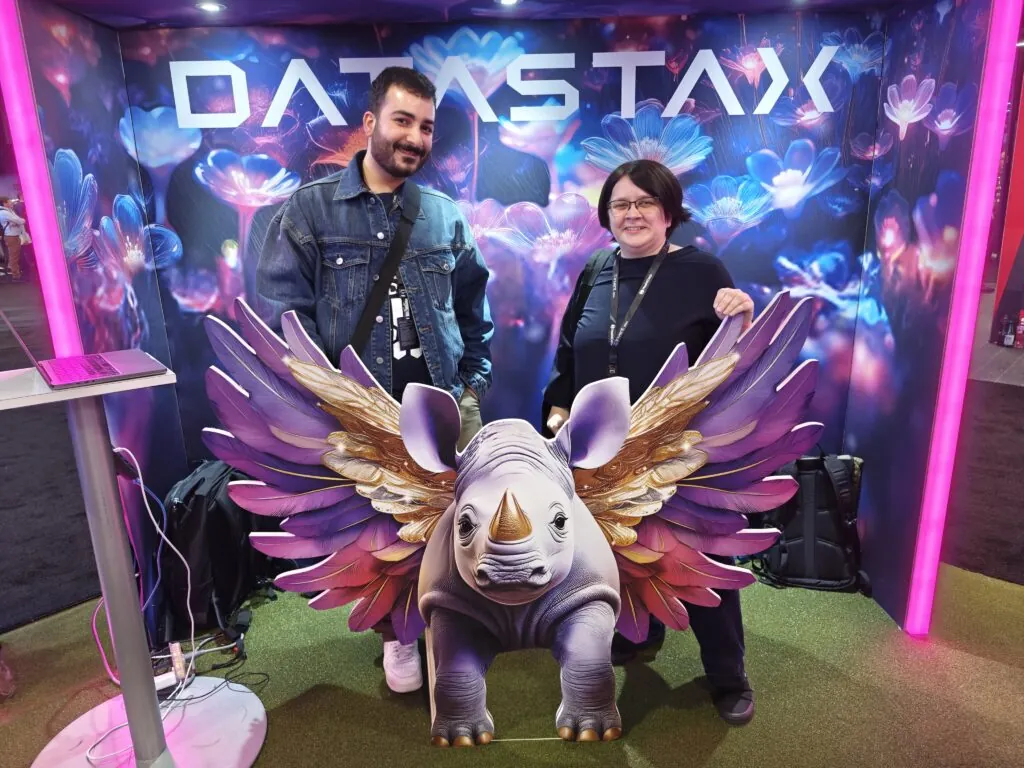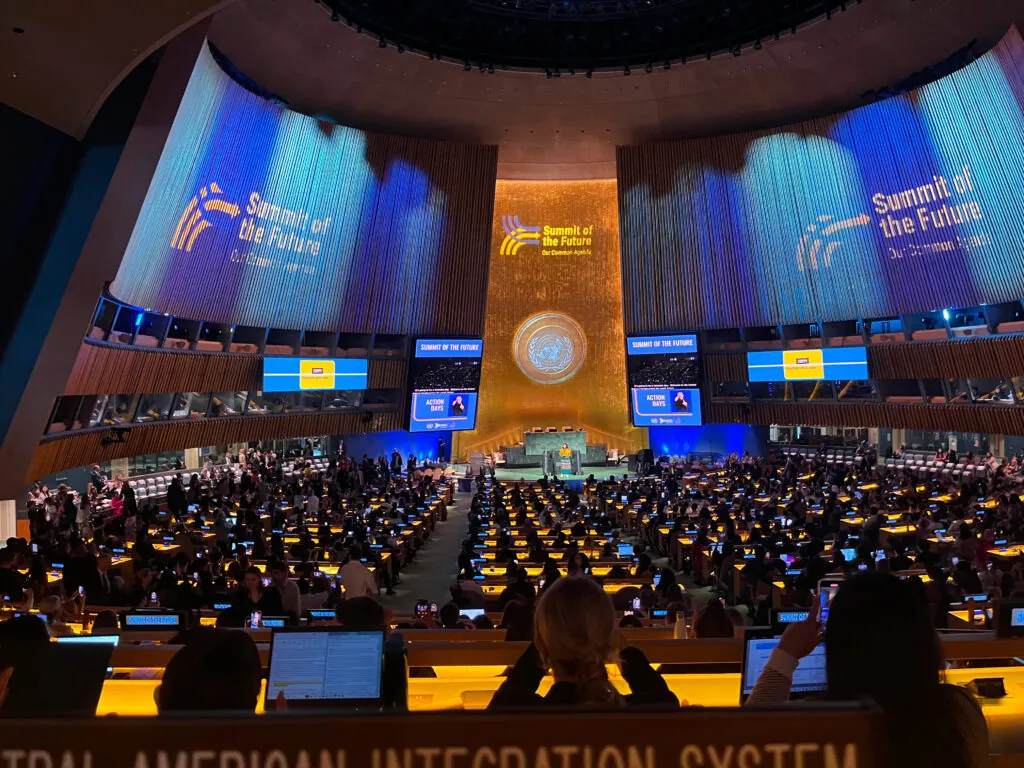Gallery
In 2024, Wikimedia Deutschland continued its commitment to Free Knowledge at numerous conferences, events and panel discussions. Here is a selection.

WMDE beim IGF, CC BY-SA 4.0
At the IGF-D 2024, representatives from
politics, civil society, and academia discussed the Global Digital Compact and the future of international digital policy—including Wikimedia expert Dr. Friederike von Franqué (left).
Markus Richter (right), State Secretary at the Federal Ministry of the Interior, symbolically let data flow instead of water during a visit to the Wikimedia office at the data pump. The discussions focused on topics such as the advantages of open data and better conditions for civil society.

Carter Rabasa, CC BY-SA 4.0
Philippe Saadé and Lydia Pintscher from Wikimedia Germany presented a new AI project at AWS re:Invent in Las Vegas: Together with DataStax, we are working on preparing the free knowledge data from Wikidata so that it can be used more easily for AI applications.

Lilli Iliev (WMDE), Gruppenbild Bündnis F5, republica 2024, CC0 1.0
Free knowledge was once again a key topic at re:publica in Berlin in 2024. Current digital policy issues were discussed at the stand of Wikimedia Germany and the F5 Alliance. Numerous politicians stopped by, including Saskia Esken, Steffi Lemke, and Sabine Leutheusser-Schnarrenberger.

Wikimedia Deutschland, CC BY-SA 4.0
At the first Digital Ministers Conference in Potsdam, we at Alliance F5 presented our demands for a digital policy that serves the common good. Pictured (from right to left): Martina Klement (Chief Digital Officer Berlin), Christian Humborg and Lilli Iliev (Wikimedia Germany), Kai Dittmann (Society for Civil Rights).

© Raimond Spekking / CC BY-SA 4.0 (via Wikimedia Commons), Deutsches Technikmuseum Berlin mit Rosinenbomber, Luftaufnahme-0035, CC BY-SA 4.0
With the support of Wikimedia Germany, Wikipedia contributors were allowed to fly a drone in and above the German Museum of Technology in Berlin. The result is a series of impressive images under a free license, including shots of the “Rosinenbomber” (raisin bomber).

Lilli Iliev (WMDE), CC BY-SA 4.0
Together with many other organizations, we have called on members of the German Bundestag to oppose all forms of remote biometric identification in public spaces—for the protection of our fundamental rights and the right to anonymity.

Franziska Heine, Summit of the Future 1+2, CC BY-SA 4.0
In August 2024, the UN Future Summit took place in the impressive conference hall of the UN General Assembly in New York. In attendance were representatives of the global Wikimedia movement. They advocated for digital commons such as Wikipedia as important building blocks for education, climate protection, and social justice. Their efforts were successful: these issues will be included in the Global Digital Compact.

Franziska Heine, Summit of the Future 1+2, CC BY-SA 4.0
At the UN Future Summit: representatives of the global Wikimedia movement, including Wikipedia founder Jimmy Wales and Franziska Heine, chair of Wikimedia Germany.

People around the world are committed to open education. Many of them came together at the 3rd UNESCO World Congress in Dubai. Heike Gleibs (right) from Wikimedia Germany spoke there on topics such as open education, AI, and the future of a networked openness movement.


